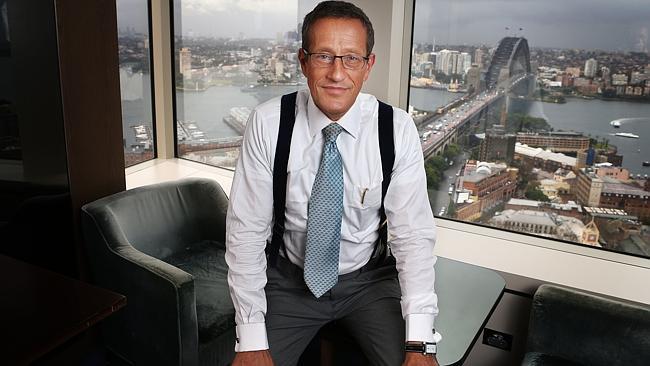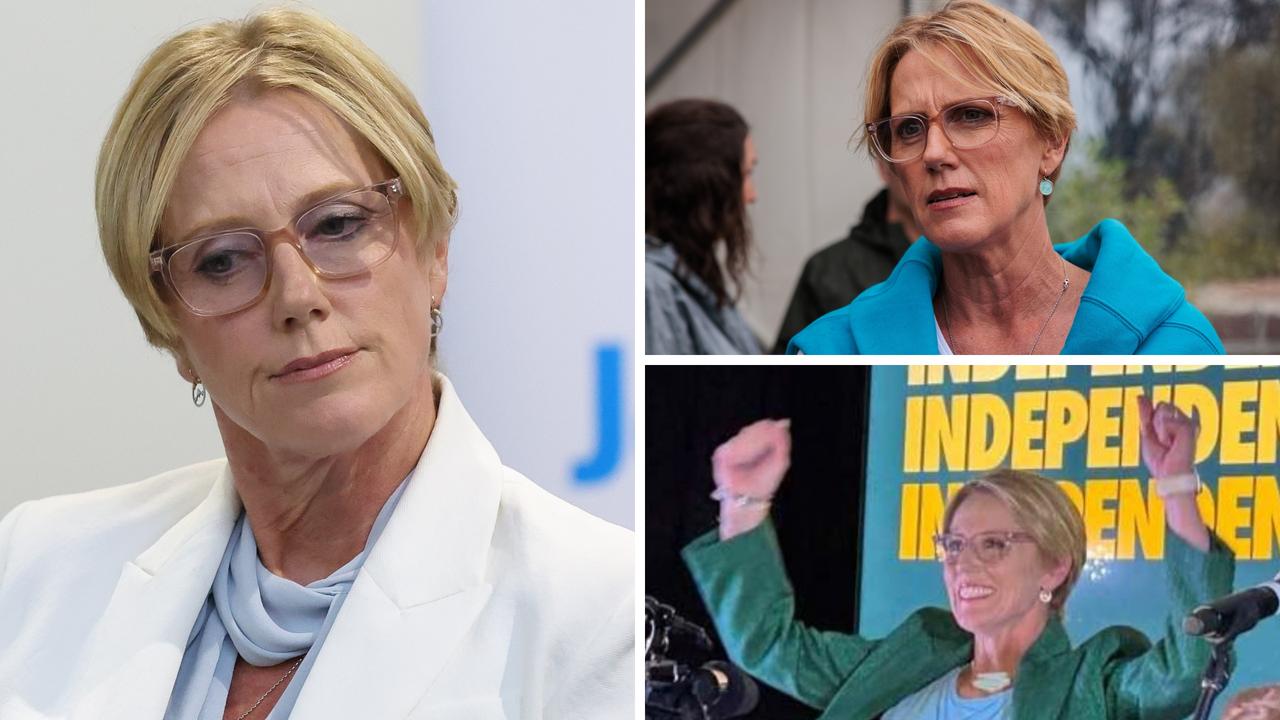CNN anchor Richard Quest calls for ‘shoe-leather’ reporting
A top CNN anchor says parts of the mainstream media are reflecting an out-of-touch elite rather than the people.

One of CNN’s best-known anchors said the rise of Donald Trump, the Brexit vote, and support for independents in the Australian federal election show how parts of the mainstream media are reflecting an out-of-touch elite rather than the people.
Calling for a return to the practice of old-fashioned shoe-leather reporting, CNN’s Richard Quest said journalists should spend less time tweeting, leave their desks and “get their asses out of the office”.
In an interview with The Australian, Quest said recent events revealed a disconnect between the media and a “populist tide of discontent” with ruling elites and establishment groupthink across the Western world.
“We have to look and question ourselves, whether or not we are inadvertently allowing our metropolitan, cosmopolitan, elite-driven bias of living in the major capitals to somehow shadow us from what might be happening,” said Quest, who is visiting Australia to support a renewed push by the cable news channel into the local market.
“There is no journalist or senior editor of a certain age that doesn’t know that the best reporting you can do is to go and see it for yourself. You can’t confidently predict a result by looking at the level of tweets,” said Quest in relation to the media’s struggle to predict results like the Conservative Party’s thumping majority in last year’s general election.
If you have ever switched on Foxtel’s channel 605 you will have almost certainly seen Quest, the idiosyncratic host of Quest Means Business, instantly recognised by his voluble delivery and flailing arms.
Bridging hard economics and entertainment, Quest’s acerbic interview technique makes his show distinctive and fun in the sometimes serious-minded world of network news. He says some find his over-the-top delivery and raspy voice off-putting.
“It sounds like I’m gargling with glass. It’s just the way I am. It’s not put on. People ask me if it’s an act for television. If it’s not authentic, they won’t believe you. But being on television does require an element of performance, so it’s an exaggerated version of what one normally is.”
While Quest admits that “sometimes I go over the top”, he said people sometimes show a reluctance to rein him back because of his “experience and seniority” even though he asks for constructive criticism. “I had this recently when my EP delicately came up to me and said ‘You’re interrupting the interviewees too much’. Now, I wasn’t being rude, I was being enthusiastic in the interview. I took it on board.”
Born in the north of England, Quest moved to New York in the late 1980s as North America business correspondent for the BBC, joining CNN in 2001. Based in New York, he was recently tapped as CNNMoney’s editor-at-large, for which he pens a global daily newsletter, timed to the opening of the Asia markets.
In the US, a focus on the big story and the US presidential election drama has helped revive CNN’s fortunes, albeit off a low base. Its share of the total cable news audience share has reached almost 30 per cent in 2016, up from 20 per cent in 2012, according to Nielsen. The performance is in stark contrast to three years ago when CNN consistently lost out to rivals Fox News Channel and MSNBC.
Judging by Donald Trump’s recent attacks on CNN, you might think the presidential candidate is running against the cable news channel, and not Hillary Clinton. Mr Trump frequently derides the media as dishonest without specifying what is wrong with the stories he faults, according to Quest.
“We take the attacks seriously; we have to. If we feel there’s any grounds to them then we obviously look at them. You have to seriously question somebody who has managed to ban The Washington Post along with a load of other newspapers at various points, calls the New York Times a failing organ, has an all-out battle with CNN, manages to have a row with Fox News to epic proportions before they finally come to a modus operandi.
“Now every politician believes at some point that the media is against them or a section of the media is against them — that’s not new — but this man has taken it to an industrial scale.”
But the raucous spectacle of the race for the White House is not the only factor behind CNN’s ratings resurgence.
The arrival of Jeff Zucker in 2013 as CNN Worldwide president has marked a shift away from the broadcaster’s usual diet of rolling news towards new programming and documentary-style shows.
Zucker’s impact at the Time Warner-owned operations cannot be underestimated, according to Quest, who this year went round the world in eight days on no-frills airlines for a new documentary.
“He (Zucker) famously said: ‘We were like a spare tyre in the trunk. You only take it out when you really need us for breaking news but we weren’t there for much else.’ The first thing he did was give us a purpose when there’s no breaking news by creating an entire genre of original programming that will sustain us when there’s no mega news.”
While all cable networks have enjoyed a spike in prime-time viewership during the presidential election, CNN is benefiting disproportionately after repositioning to appeal to Republicans and Democrats alike. Of accusations CNN had been guilty of overlooking middle-of-the-road conservative voices by being too left leaning, Quest is pragmatic.
“Any journalistic enterprise is by nature going to be anti-establishment. It’s our job to question the establishment. Think back to the coverage that CNN did during the Clinton impeachment. This supposed liberal network was laying into a democratic president on an hourly basis in its coverage so this idea that we are somehow biased to one side or the other it doesn’t hold water.”
Quest has just authored The Vanishing of Flight MH370: The True Story of the Hunt for the Missing Malaysian Plane, a book that details his perspective on covering the story for CNN, where he is a long-time aviation correspondent.
In a coincidence, Quest interviewed one of the two pilots a few weeks before the disappearance. More than two years after the plane’s disappearance, MH370 remains an enigma. “We just don’t know. I think that in many cases there have been way too many people who are prepared to convict, prepared to come to conclusions, and all frankly rather afraid to simply say we don’t know and I’m prepared to be wrong,” he said.
“I have a theory, a potential idea, but I’m prepared to be wrong. If I’m wrong, my book is still worth reading, because the whole book doesn’t hinge on it.”




To join the conversation, please log in. Don't have an account? Register
Join the conversation, you are commenting as Logout